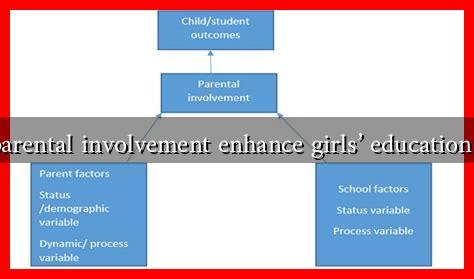-
Table of Contents
How Can Parental Involvement Enhance Girls’ Education Outcomes?
Parental involvement in education is a critical factor that can significantly influence the academic success of children, particularly girls. Research has shown that when parents actively engage in their daughters’ education, it leads to improved academic performance, higher self-esteem, and better social skills. This article explores the various ways parental involvement can enhance girls’ education outcomes, supported by relevant examples and statistics.
The Importance of Parental Engagement
Parental involvement encompasses a range of activities, from helping with homework to attending school events and communicating with teachers. The impact of such engagement is profound, especially for girls, who often face unique challenges in educational settings. Here are some key reasons why parental involvement is essential:
- Improved Academic Performance: Studies indicate that students with involved parents tend to achieve higher grades and test scores. According to a report by the National Center for Education Statistics, students whose parents are engaged in their education are 20% more likely to earn higher GPAs.
- Increased Motivation: When parents show interest in their daughters’ education, it fosters a sense of motivation and ambition. Girls are more likely to set academic goals and strive to achieve them when they know their parents care.
- Enhanced Self-Esteem: Parental support can boost a girl’s confidence. A study published in the Journal of Educational Psychology found that girls with supportive parents are more likely to believe in their abilities and pursue challenging subjects like math and science.
Strategies for Effective Parental Involvement
To maximize the benefits of parental involvement, parents can adopt several strategies that cater specifically to the needs of their daughters:
- Regular Communication: Maintaining open lines of communication with teachers and school staff can help parents stay informed about their daughters’ progress and any challenges they may face.
- Creating a Supportive Home Environment: Establishing a dedicated study space and setting aside time for homework can create a conducive learning environment. Parents should encourage their daughters to ask questions and express their thoughts freely.
- Encouraging Extracurricular Activities: Participation in sports, arts, and clubs can enhance social skills and self-esteem. Parents should encourage their daughters to explore various interests outside the classroom.
Case Studies and Real-World Examples
Several case studies illustrate the positive impact of parental involvement on girls’ education outcomes:
- The Harlem Children’s Zone: This initiative in New York City emphasizes parental engagement as a cornerstone of its educational approach. By involving parents in their children’s education, the program has seen significant improvements in academic performance among girls.
- Girls Who Code: This organization not only teaches girls coding skills but also emphasizes the importance of parental support. Their programs encourage parents to engage with their daughters in STEM activities, leading to increased interest and participation in technology fields.
Statistics Highlighting the Impact
Statistics further underscore the importance of parental involvement in enhancing girls’ education outcomes:
- A study by the Harvard Family Research Project found that girls with involved parents are 30% more likely to pursue higher education.
- According to the National PTA, students whose parents are engaged in their education have a 50% higher chance of graduating from high school.
Conclusion
Parental involvement is a powerful catalyst for enhancing girls’ education outcomes. By actively engaging in their daughters’ academic journeys, parents can foster improved performance, motivation, and self-esteem. Strategies such as regular communication, creating a supportive home environment, and encouraging extracurricular activities can make a significant difference. As evidenced by various case studies and statistics, the positive impact of parental involvement is undeniable. To learn more about fostering parental engagement in education, visit National PTA.
In summary, when parents take an active role in their daughters’ education, they not only enhance academic outcomes but also empower them to become confident, capable individuals ready to face the challenges of the future.




